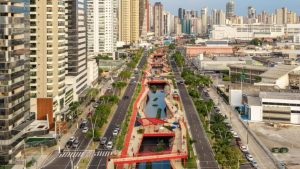From the Series

Amy Franceschini, designer, artist and pollinator of Futurefarmers in California, sent Via Campesina’s seven principles of food sovereignty in response to the question of whether food can create world peace:
Via Campesina coined the term “food sovereignty” to refer to a policy framework advocated by a number of farmers, peasants, pastoralists, fisher folk, indigenous peoples, women, rural youth and environmental organisations, namely the claimed “right” of peoples to define their own food, agriculture, livestock and fisheries systems, in contrast to having food largely subject to international market forces. Via Campesina’s seven principles of food sovereignty include:
1. Food: A basic human right. Everyone must have access to safe, nutritious and culturally appropriate food in sufficient quantity and quality to sustain a healthy life with full human dignity. Each nation should declare that access to food is a constitutional right and guarantee the development of the primary sector to ensure the concrete realisation of this fundamental right.
2. Agrarian reform. A genuine agrarian reform is necessary, which gives landless and farming people – especially women – ownership and control of the land they work, and returns territories to indigenous peoples. The right to land must be free of discrimination on the basis of gender, religion, race, social class or ideology; the land belongs to those who work it.
3. Protecting natural resources. Food sovereignty entails the sustainable care and use of natural resources, especially land, water, seeds and livestock. The people who work the land must have the right to practice sustainable management of natural resources and to conserve biodiversity free of restrictive intellectual property rights. This can only be done from a sound economic basis with security of tenure, healthy soils and reduced use of agro-chemicals.
4. Reorganising food trade. Food is first and foremost a source of nutrition and only secondarily an item of trade. National agricultural policies must prioritise production for domestic consumption and food self-sufficiency. Food imports must not displace local production nor depress prices.
5. Ending the globalisation of hunger. Food sovereignty is undermined by multilateral institutions and by speculative capital. The growing control of multinational corporations over agricultural policies has been facilitated by the economic policies of multilateral organisations such as the World Trade Organisation (WTO), World Bank and the International Monetary Fund (IMF). Regulation and taxation of speculative capital and a strictly enforced Code of Conduct for Multinational Corporations (TNCs) is therefore needed.
6. Social peace. Everyone has the right to be free from violence. Food must not be used as a weapon. Increasing levels of poverty and marginalisation in the countryside, along with the growing oppression of ethnic minorities and indigenous populations, aggravate situations of injustice and hopelessness. The ongoing displacement, forced urbanisation, oppression and increasing incidence of racism of smallholder farmers cannot be tolerated.
7. Democratic control. Smallholder farmers must have direct input into formulating agricultural policies at all levels. The United Nations and related organisations will have to undergo a process of democratisation to enable this to become a reality. Everyone has the right to honest, accurate information, and open and democratic decision-making. These rights form the basis of good governance, accountability and equal participation in economic, political and social life, free from all forms of discrimination. Rural women, in particular, must be granted direct and active decision-making on food and rural issues.
Watch Amy Franceschini talk about the acclaimed Victory Gardens project by Futurefarmers.








